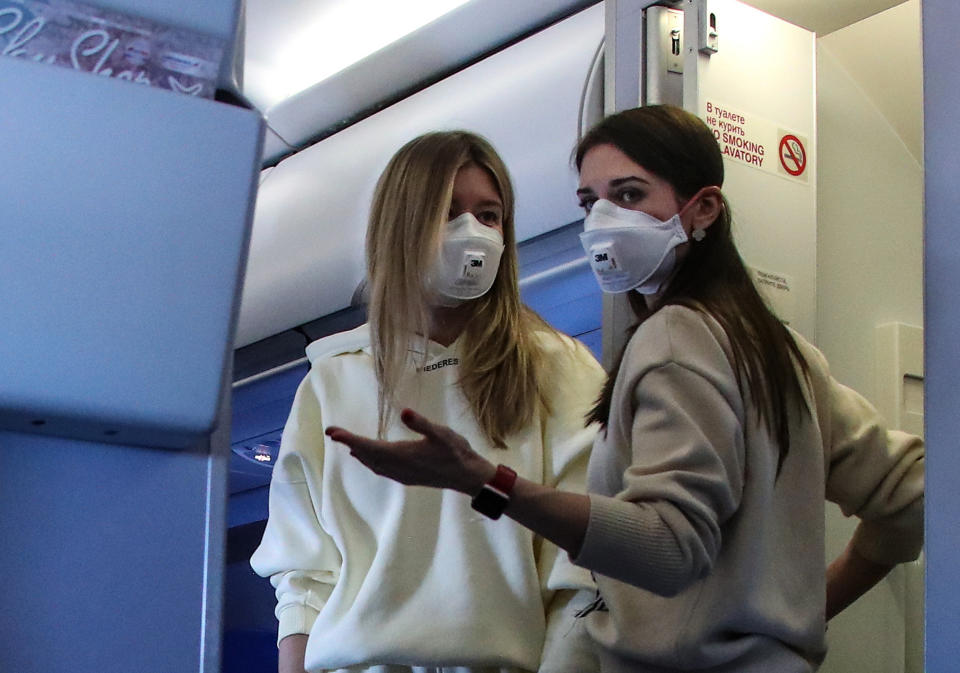What are your chances of dying from coronavirus?
With the number of confirmed cases of coronavirus in Australia growing, health authorities are warning the public to brace for things to get worse.
Cases are certainly going to rise but only a small fraction of those who contract COVID-19, the disease caused by SARS-CoV-2 (severe acute respiratory syndrome coronavirus 2), will develop severe symptoms.
A majority of those infected will suffer typical flu-like symptoms and be able to rid themselves of the virus.
“So much is unknown but there does seem to be considerable variability in the severity of cases,” says Dr Timonthy Newsome, a virologist from the University of Sydney.
“This is probably not due to strain differences as there’s no evidence of much divergence since the outbreak,” he explained.
“There are cases that are mild, some cases are asymptomatic for a period of weeks before progressing, and potentially cases that are completely asymptomatic.”
The unlucky patients who do develop “severe” symptoms – thought to be as many as 14 per cent of cases – can experience pneumonia and shortness of breath while another five per cent of patients can develop respiratory failure, septic shock, and multi-organ failure.
As scientists get a handle on the mortality rate, the best modelling suggests as much as one per cent of cases will result in death.
First cases of human-to-human transmission confirmed in Australia
Terrifying map shows how far coronavirus has spread in just one week
Health expert reveals unsettling theory about coronavirus spread
Who is most at risk?
Like with any respiratory disease, age is a key predictor for mortality.
“From everything we’ve seen so far, absolutely the elderly are at risk,” said Professor Ian Mackay, virologist and associate professor at the University of Queensland.
By far the highest mortality rate has been among those over the age of 80. According to some early data out of China, those aged between 70 and 79 have shown a fatality rate of roughly 8 per cent while those over the age of 80 have shown a mortality rate closer to 14 per cent.
Prof Mackay doesn’t think it is likely that any genetic variations in people could impact the severity of COVID-19, but said more research is needed to understand why exactly COVID-19 is more deadly among the elderly.
“We don’t really know whether it’s a vulnerable immune system ... or even whether it’s something to do with the receptor of that virus,” he told Yahoo News Australia.
“We do know that this receptor is expressed a bit more when we get older so it may be that there are more opportunities for the virus to bind to cells in older people than in younger people,” he speculated.
“That’s something that’s obviously going to take some research. We haven’t got that yet.”

The mortality rate of the disease has been widely reported as hovering around two per cent of cases but that number is not overly reliable, Prof McKay said.
That number is achieved by taking all known cases and dividing by all the known deaths. But there are obvious problems with that simple method and a delay between reported cases and eventual deaths.
“Modelling has suggested that less than one per cent of cases die,” Prof Mackay explained. “At scale that’s still a lot of deaths.”
According to Prof Newsome, estimates of the mortality rate range from between 0.3 per cent and as much as 3 per cent. Even at the lower end, he said, it still makes COVID-19 more deadly than the standard flu.
“It’s definitely worse than the flu and the worst case scenario (is) not that far off the Spanish flu,” he told Yahoo News Australia.
“Other animal origin, zoonotic coronaviruses such as SARS and MERS are less contagious but more deadly, about a 10 per cent and 30 per cent case fatality rate, respectively,” he said.
Are children at less risk of the disease?
From what we’ve seen in China, the epicentre of the virus outbreak, children are less likely to develop the most severe symptoms of COVID-19. While they’re capable of contracting the virus, cases in children appear to be much milder.
Australia’s Chief medical officer Dr Brendan Murphy said this has been a surprising element of COVID-19.
“It's very unusual compared to influenza,” he said over the weekend.
“We don't know whether children might be getting the disease but (their symptoms) are so mild they are not being picked up, or they're not becoming sick, or whether they are somehow less susceptible.”

We do know that children can be infected, however. “There have been paediatric cases, there have been neonatal cases from an infected mum or a nanny looking after the baby,” Prof MacKay told Yahoo News Australia.
The good news is that the more mild cases of the disease are, at least theoretically, less likely to spread to others.
“If there’s less severe disease it usually means there is less viral load,” Prof Mackay said.
“But not always though, and this virus does seem to appear with quite a lot of virus in it without necessarily having symptoms to accompany it.”
Are pregnant women at risk?
Speaking to the ABC, virologist Bill Rawlinson from the University of New South Wales said COVID-19 doesn’t yet appear to be as dangerous for pregnant women as the swine flu outbreak a decade ago.
“We are not seeing groups like pregnant women affected by COVID-19 like we did from swine flu,” he said.
Despite the early days of the outbreak, research into the disease suggests the same “optimistic” finding, according to a study published last month in The Lancet.
“The clinical characteristics reported in pregnant women with confirmed COVID-19 infection are similar to those reported for non-pregnant adults with confirmed COVID-19 infection in the general population and are indicative of a relatively optimistic clinical course and outcomes,” the study found.
However, given the small number of cases, researchers said more work was needed to evaluate the safety and health of pregnant women and newborn babies who develop COVID-19 infection.
Do you have a story tip? Email: newsroomau@yahoonews.com.
You can also follow us on Facebook, Instagram and Twitter and download the Yahoo News app from the App Store or Google Play.




